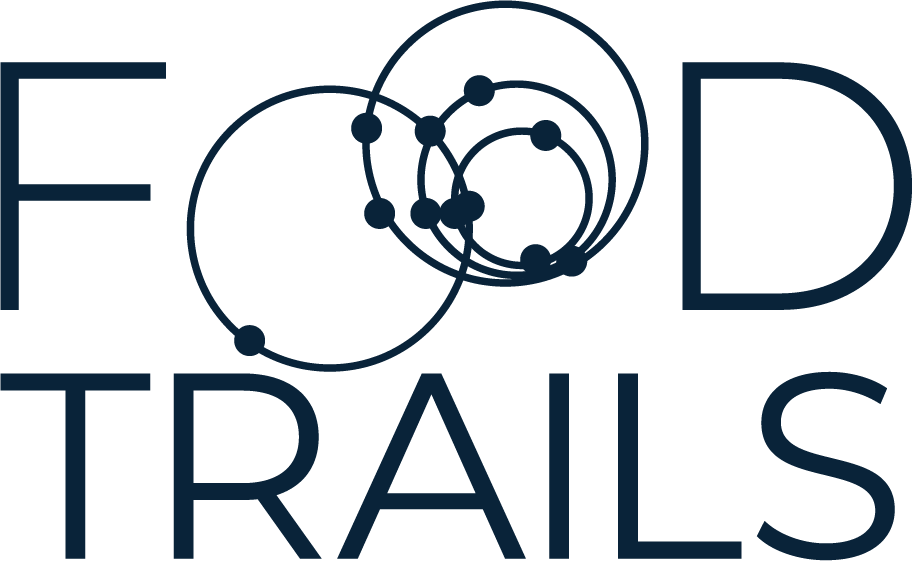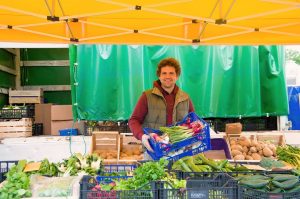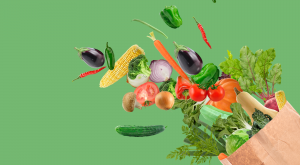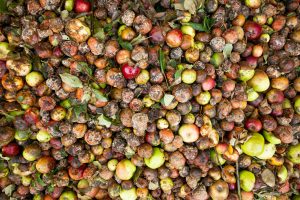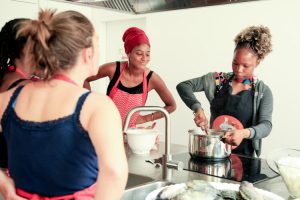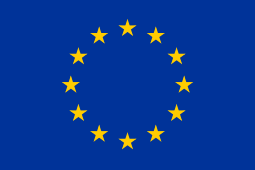The Milan Pact and European project FIT4FOOD2030 are pleased to present the Side Event – Sustainable Food Systems fod Cities of the High Level FOOD2030 Event in Plovdiv (Bulgaria), an interactive opportunity to explore selected Research and Innovation (R&I) cases within Milan Urban Food Policy Pact (MUFPP) cities. During the event participants will investigate cases and collaborate to identify what makes a good practice successful. The Side Event will also be a chance to learn more about FIT4FOOD project and to have an overview about European food system.
 Nowadays cities are becoming living laboratories that play a role as thinker, facilitator and enabler and in urban areas, innovations are carried out in close contact with every-day context, developing local solutions for food system sustainability. Several cities worldwide adopted food policies that are acting on different stages of the food system: production, transformation, logistics, distribution, consumption, waste; these local initiatives will contribute to a food system transformation.
Nowadays cities are becoming living laboratories that play a role as thinker, facilitator and enabler and in urban areas, innovations are carried out in close contact with every-day context, developing local solutions for food system sustainability. Several cities worldwide adopted food policies that are acting on different stages of the food system: production, transformation, logistics, distribution, consumption, waste; these local initiatives will contribute to a food system transformation.
Food2030 is an European platform for dialogue that will create a coherent policy framework based on research and innovation for food and nutrition security. The initiative is rooted in the principles of Responsible Research and Innovation (RRI) and articulates actions on 4 priorities: nutrition, climate, circularity, innovation.
Find here the Agenda of the Side Event
REPORT of the Side Event
Initial session
During the first session the experience of Milan Urban Food Policy Pact and Eurocities Working Group Food will be presented by Andrea Magarini (Milan Food Policy coordinator and chair of Eurociteis Working Group Food) along with the project FIT4FOOD2030 by Chrissie Brierley (ZonMw), contributions by Roberta Sonnino (Cardiff University) focusing on th new fields of action for researchers and by Valentina Amorese (Cariplo Foundation) on the role of grantmaking organization in support local stakeholders engagement will follow.
Human Food Bingo game
Partiticpants will be invited to join a ice-breaking game: the Human Food Bingo. Using this form the participants will have the chance to mark all the boxes containing a MUFPP recommended action on which their organization is currently working (each reccomended action is flagged with the number from the MUFPP text ). Than they will be invited to go around and interview other participants, asking them if they work on the same actions and mark them on your boxes “OTHER” and move to the next person. When a single sheet will have a line/column/diagonal the participant will achieve bingo.

World Cafè session
 The core of the Side Event will be the World Cafè session. Each participant will be able to attend two of the four parallel sessions where different moderators from the FIT4FOOD2030 consortium will explain cities cases and will guide the discussion. The Milan Pact team selected eight European good practices among winners of Milan Pact Awards 2016&2017 editions, clustering them in accord with FOOD2030 priorities. These cases are examples of place-base solutions for a food system transformation and will be presented in policy brief format:.
The core of the Side Event will be the World Cafè session. Each participant will be able to attend two of the four parallel sessions where different moderators from the FIT4FOOD2030 consortium will explain cities cases and will guide the discussion. The Milan Pact team selected eight European good practices among winners of Milan Pact Awards 2016&2017 editions, clustering them in accord with FOOD2030 priorities. These cases are examples of place-base solutions for a food system transformation and will be presented in policy brief format:.
NUTRITION for sustainable and healthy diets. Ensuring that nutritious food and water are available, accessible and affordable for all. Cases: Birmingham – public health against obesity and Ghent – healthy and sustainable school meals.
CLIMATE smart and environmentally sustainable food systems. Building climate smart food systems adaptive to climate change, conserving natural resources and contributing to climate change mitigation. Cases: Copenhagen – 90% organic food in procurement, Riga – green energy and heat for greenhouses and the additional case of Ljubljana – bee colonies for urban biodiversity.
CIRCULARITY and resource efficiency of food systems. Implementing resource-efficient circular economy principles across the whole food system while reducing its environmental footprint. Cases: Milan – circular economy for food donation and Bruges – reduction of food waste in healthcare.
INNOVATION and empowerment of communities. Boosting innovation and investment, while empowering communities. Cases: Ede – political commitment for a new governance and Bordeaux – metropolitan food council.
In each policy brief a special focus is dedicated to urban networks that are working on the specific issues related with FOOD2030 priorities. For the cities, urban networks play a crucial role for exchanging experiences, as much as for inspiring and training city officers: WHO Healthy Cities (Nutrition), C40 Food System Network and 100 Resilient Cities (Climate), Circular Economy 100 of Hellen Macartur Foundation (Circularity), Eurocities Working Group Food and CityFood of ICLEI (Innovation).
Participant will also be invited to participate in the Case Impact Assessment with this form. The main aim of this activity will be to focus participants attention on how urban food policy actions can be compliant to FOOD2030 priorities and contribute to more efficient solutions to food system issues.
As a contribution to knowledge mobilization, each policy brief also present the main outputs of two study: “Food in Cities” study commissioned by European Commission DG DTD to City of Milan, Eurocities and Cardiff University in 2016 that presents a set of six research open needs, and the study “What make Food Policy Happens” made by IPES-Food in 2017 that presents a set of 15 enabler factors for Food Policy actions success.
The Milan Team and the FIT4FOOD2030 consortium will summarize the knowledge shared and will create a Report as contribution to the FOOD2030 policy framework.
Social media:
#Food2030EU #MUFPP #EUFoodCities
@MUFPP @SciFoodHealth
